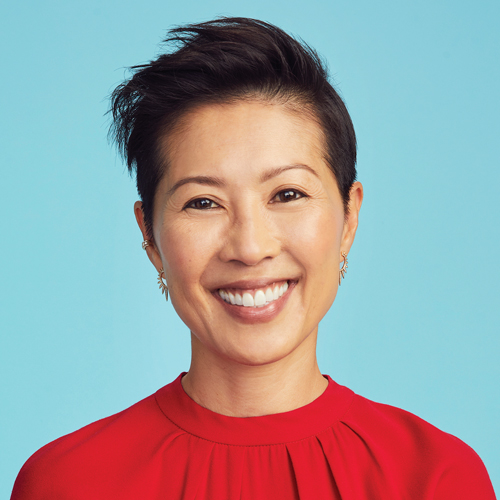
Since joining WarnerMedia in February of 2020, Shelton has designed and implemented programs focused on advancing those from marginalized communities. One such example is Path to Equity, a three-part intensive in which participants explore how to apply a racial equity lens in their daily lives to identify barriers. Shelton is also proud that WarnerMedia has 12 Business Resource Groups with 48+ chapters, including more than 7,000 global members. One initiative that exemplifies the impact of BRGs is the Inclusive Conversations about #StopAsianHate, which Shelton says was designed to “provide a safe and supportive space for colleagues to have open conversations about anti-Asian violence, to reflect on the root cause and how to address it, practice self-care and continue to listen and learn from each other.” She adds, “At WarnerMedia, we’re naming the discomfort and leaning into it so that we don’t let the crises that so many have endured go to waste.”
Best initiative to come out of one of your company’s Employee Resource Groups?
WarnerMedia is proud to have 12 Business Resource Groups (BRGs) with 48+ chapters including more than 7,000 global members. One initiative that exemplifies the impact of BRGs is the Inclusive Conversations about #StopAsianHate. ARC (AAPI Representing Change) – Inclusive Conversation: #StopAsianHate. With the rise in harassment and hate crimes directed at Asian Americans and those within the Asian diaspora, ARC and our E&I Team held Inclusive Conversations designed to provide a safe and supportive space for colleagues to have open conversations about anti-Asian violence, to reflect on the root cause and how to address it, practice self-care and continue to listen and learn from each other. There were four sessions, each introduced by a senior executive sharing their personal stories, followed by small group sessions that allowed for more intimate conversations. The sessions directly connected more than 500 employees from 40+ cities in deep conversations that resulted in a stronger sense of community and shared experiences. These sessions were supplemented with perspective sharing from colleagues across the company, including BRG executive sponsors, talent from HBO’s WARRIOR and CNN, and prominent activists. The comprehensiveness and impact of this initiative made it one of the best initiatives the BRGs led.
What’s been the most dramatic change in your sector of the business today vs three years ago?
The most dramatic change that I’ve seen in this sector, today vs. three years ago, is that there is now more willingness to get comfortable being uncomfortable. Just a few years ago, companies were still relying heavily on unconscious bias training to bring people into the conversation about diversity in a comfortable, non-confrontational way. The objective seemed to be to engage people in a way that would not make them feel bad, defensive or uncomfortable. It feels like we’re moving beyond that, and people are willing to look at the conscious decisions we make, behaviors we exhibit and systems we create that benefit some people and disadvantage others. This requires a level of candor, tolerance for discomfort and willingness to engage that we’re seeing more and more across the industry. This can sometimes be awkward but we’re not backing away from it. At WarnerMedia, we’re naming the discomfort and leaning into it so that we don’t let the crises that so many have endured go to waste.
My best advice for fostering open, honest communication…
is to start with active listening, incorporate moral reframing, and include story sharing. This idea comes from work at Stanford’s Polarization and Social Change Lab. It starts with active listening in a non-judgmental way. Moral reframing is understanding the values of the person you’re communicating with and considering an issue through their moral views, which conveys respect and empathy. Lastly, story sharing is simply sharing your views in the context of your personal story or experience, which humanizes issues and helps create connections. This is all much easier said than done. It will take effort to change corporate norms and personal habits that often prioritize efficiency and short-term productivity over open, honest communications that build trust and psychological safety over time. So, at bottom, my advice is to know that it’s worth the effort to make space for open, honest conversations because what is on the other side of the effort is unlocked brilliance, contribution, and collaboration of the like we have probably not seen before.